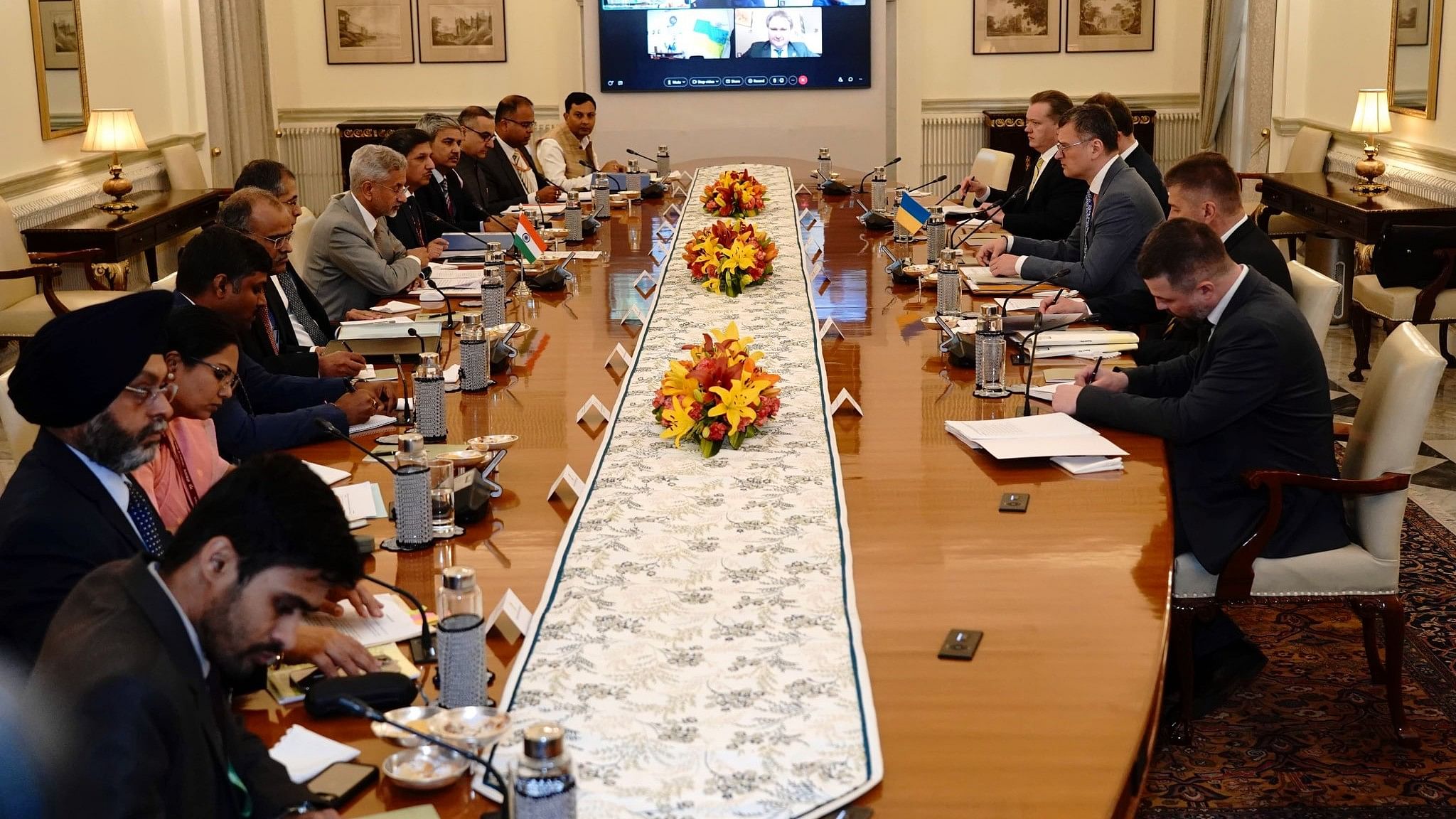
External Affairs Minister S Jaishankar with his Ukrainian counterpart, Dmytro Kuleba.
Credit: X/@DrSJaishankar
New Delhi: India and Ukraine on Friday agreed to restore bilateral trade to the level that existed before Russia launched its ‘special military operations’ in the East European nation in February 2022.
External Affairs Minister S Jaishankar hosted his Ukrainian counterpart, Dmytro Kuleba, who later said that the two nations had now agreed to restore bilateral cooperation to the level that had existed before Russia had launched a “full-scale war” against his East European nation. They discussed the ways to strengthen bilateral relations in several areas, including defence and science and technology.
Jaishankar and Kuleba also discussed the ‘peace formula’ proposed by Kyiv to end the conflict between Ukraine and Russia – a formula that was repeatedly rejected by President Vladimir Putin’s government in Moscow.
“Noted the importance of further strengthening cooperation in all domains. Our immediate goal is to get trade back to earlier levels,” Jaishankar posted on X after his meeting with Kuleba in New Delhi.
The volume of India-Ukraine trade dropped from $3.38 billion in 2021 to $2.58 billion in 2022. India’s exports to Ukraine dropped by 22.8% to $85.49 million, while Ukraine’s exports to India fell by 17.3% to $1.69 billion.
“We also co-chaired the Ukrainian-Indian intergovernmental commission review meeting and agreed to restore the level of cooperation between our countries that existed prior to the full-scale war launched by Russia, as well as identify new promising projects to take our relations to the next level,” Kuleba posted on X.
Kuleba arrived in New Delhi on Thursday for a three-day visit. His is the first high-level visit from Kyiv to New Delhi after Russia launched its ‘special military operations’ in Ukraine. He will return to Kyiv on Saturday.
New Delhi drew flak from the United States and the rest of the West for not joining the clamour against Moscow after Russia launched its “special military operations” in Ukraine in February 2022. New Delhi has been maintaining a strategic balance in its ties with Moscow and Washington DC. India’s decades-old strategic partnership with and its dependence on the Soviet Union and its successor Russia for military hardware appeared to have stopped Prime Minister Narendra Modi’s government from speaking up against Moscow. India has also been circumventing sanctions imposed by the US and the rest of the West on Russia and continued bilateral trade. It has also increased oil and coal imports from Russia. Modi, however, told Russian President Vladimir Putin in Samarkand in September 2022 that it was not an era of war, and the Moscow-Kyiv conflict should be resolved through dialogue and diplomacy.
“We paid specific attention to the Peace Formula and (the) next steps on the path of its implementation,” Kuleba posted on X after his meeting with Jaishankar in New Delhi.
It was at the G20 summit at Bali in Indonesia in November 2022 that Ukrainian President Volodymyr Zelensky first presented a 10-point peace plan to end Russia's military operations in his country.
The 10-point plan included the restoration of the territorial integrity of Ukraine and a complete withdrawal of troops by Russia as well as prosecution of people responsible for war crimes. Moscow rejected the peace formula offered by Kyiv.
